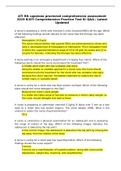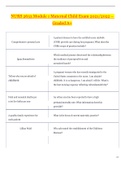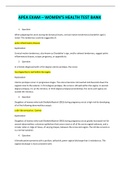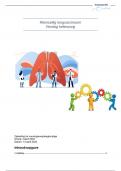Essay
Essay Unit 30 - Health Psychology (J/600/8985) BTEC Level 3 National Health and Social Care, ISBN: 9781846907470
- Institution
- PEARSON (PEARSON)
This unit aims to give learners an understanding of the application of the principles of psychology by gaining knowledge of health-related behaviours. It also aims to give them an understanding of the factors affecting those behaviours, models of stress and the role of psychology in dealing with ...
[Show more]













